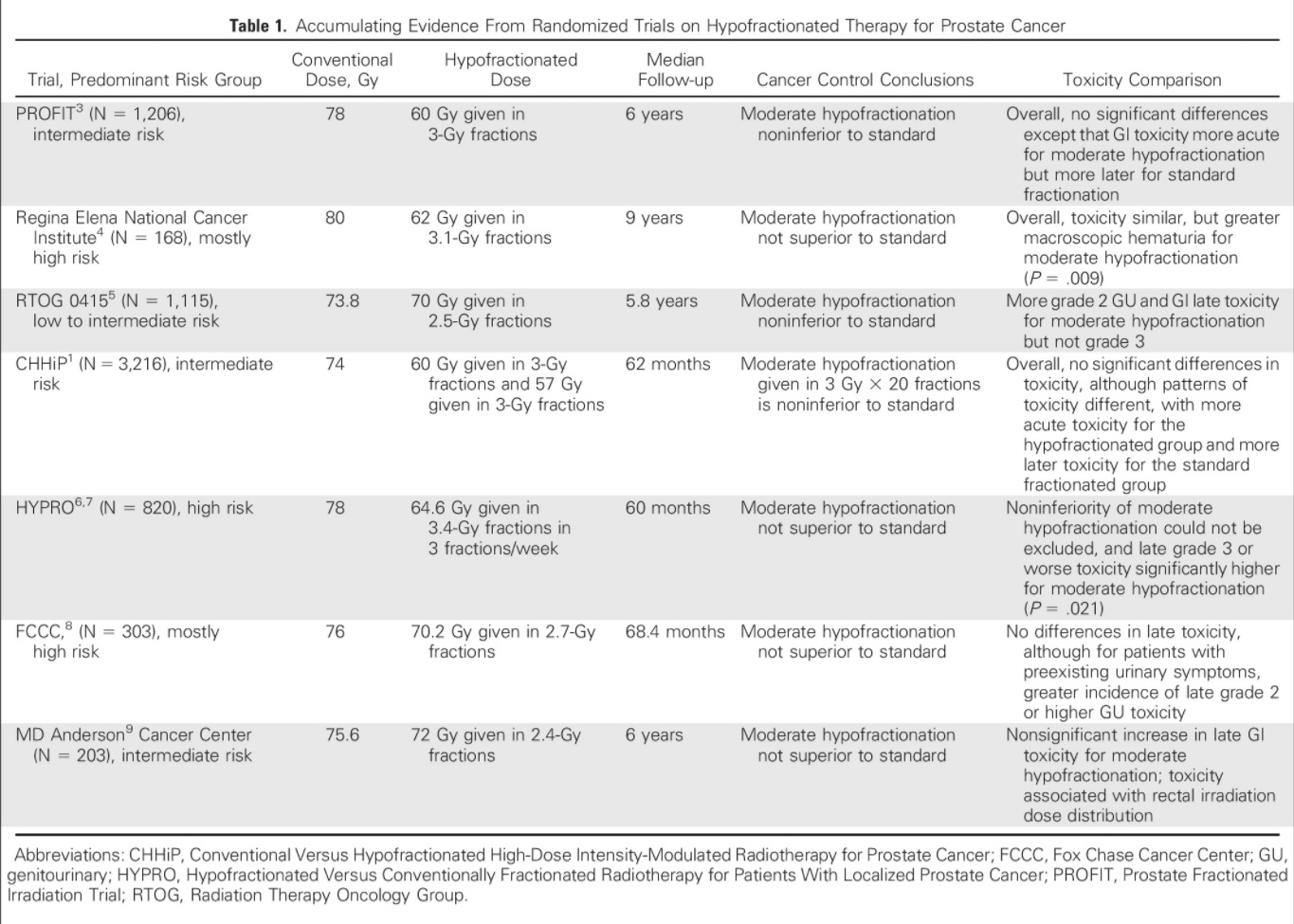The moderate prostate hypofractionation stuff drives me a bit crazy. Table 1 in the editorial you attached (thanks for all that btw) shows that most trials showed an increase in toxicity with hypofractionation. Isn't that worse? Sure, biochemical control is the same, but isn't worsening toxicity moving in the wrong direction? Wouldn't some patients be happier being treated for longer, but with less toxicity? Will there be an increase in late toxicity (especially GU) like some are whispering? Aren't these differences in toxicity (albeit not huge) what academic centers use to push proton therapy?
It seems to me that academic departments love to do this research, probably because it's really, really easy. Why explore a new avenue of research and treatment like what XRT can do with the Abscopal effect and immunotx when you can come up with yet another moderate hypofractionation trial? Why try to improve outcomes when you can just try to match them? Then, once your results show the biochemical outcomes are similar, even though it was more toxic, you can apparently just ignore that worsening toxicity and use your data as a club to beat clinical radocs to death, claiming they only choose treatments based on reimbursement. Easy peasy, tenure here I come.
I'm not against hypofractionation when the data looks good: I hypofractionate 90+% of my breast patients (all who make the < 107% criteria, more or less), and we have a huge urorads group in town, so I don't treat many prostates at all and don't have as much of a dog in this particular fight. However, I just cannot understand the disconnect I'm seeing on the prostate data. The toxicity is somewhat worse in the acute setting, and we'll have to see what longer follow-up shows. If the situation were explained to patients clearly ("We're going to treat you with hypofractionation, which is somewhat more toxic, but you can get it done more quickly and it saves society money"), I can't imagine 100% of patients would choose hypofractionation. If we're saying "the increase in toxicity is small and patients would accept that for a shorter treatment course", is that true? Has anyone asked patients that question?
My ultimate standard for every patient is "what would I want"? Were I to be diagnosed with prostate cancer, and I elected EBRT (which I likely would, to be honest), I would not chose hypofractionation for myself, but rather standard fractionation.


